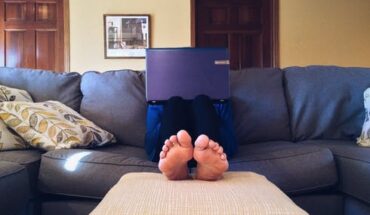A Closer Look on Hardwood Flooring
Hardwood flooring delivers elegance and warmth to your office or home. Several available materials now can match the appearance of wooden floors, yet, hardwood remains a solid option for contractors and developers.
Wooden floors seem to blend and enhance the aesthetic appeal of residences and work areas, and it complements every type of design. Yet, any building material has its benefits and negative aspects; let’s evaluate both sides of the equation if hardwood flooring is for you.
Advantages
Long-term Investment
Wood flooring might appear expensive, but unlike other floorings that need to be changed in about ten years, properly maintained wood flooring tends to last over a hundred years. There’s a good return on investment as the market value of wood flooring remains to rise with time.
Durability
They don’t quickly appear worn out or dull, and it ages beautifully. Some floorings such as vinyl or carpet need to be changed after a particular time. A properly maintained wood flooring can outlive you. It merely needs re-sanding or reconditioning to maintain its luster and a brand-new appearance.
Better Air Quality
The hypoallergenic quality of wooden floors makes the perfect option for homes with family members at risk of allergies. It’s likewise safe for babies who just learned to crawl, considering that wooden flooring does not nurture parasites like fleas or dust mites. It also does not trap undesirable odors.
Variety
There are several types to select from, it can be found in different colors, and even a single plank could have a different shade. You can tarnish, repaint, or torch them to enhance their visual charm. Mixing and matching different types of woods can make your floor look interesting.
Disadvantages
High Cost
The price of wooden flooring is more pricey than most tiles and carpets. There’s also a subflooring needed that makes the installation complicated. You need to polish the floor in about 3-4 years. It would be best to keep clean, considering that dust and debris may scratch the surface.
Cupping and Crowning
Several issues could occur when the wood has been soaked in water, such as from flooding or any water damage. When wood had excessive moisture, cupping or crowning could happen. When the sides of the wood board are higher than the center, it’s called cupping. Crowning is the opposite of cupping; the center of the board becomes higher than the edges. Call this restoration company for any indication of water damage.
Noise
A newly installed or well-maintained wooden floor will be noise-free. But after several years, the constant wear and tear will make specific slabs to cause a creaking noise as you walk on the surface. It can disturb people residing downstairs if you’re living in an apartment. Or it could be an annoyance to other people trying to rest.
Molds
Pay attention to any water seepage if mold growth is indicated. Molds on wood tend to be on the sub-layer or fill up the spaces, yet they can also damage the top layer of the flooring. Hardwood requires it to be appropriately maintained to prevent fungus or molds from growing. Contact restoration companies such as PuroClean to immediately resolve any moisture problems which are the leading cause of mold growth.
Conclusion
Opting for a suitable hardwood material could be challenging. Take into consideration all the advantages and the downsides to get to a sound decision. Wood has ageless appeal to most property owners, and an excellent wooden floor can make the appraised value of your property higher.
You need to take care of specific challenges to preserve a wooden floor. However, hardwood flooring is the healthiest alternative because of its organic origin. It helps reduce your carbon footprints and substantially boosts your property’s general appearance.




